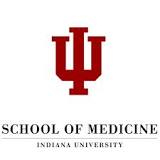REWARD SYSTEM RESPONSES TO FOOD AROMAS
| Status: | Recruiting |
|---|---|
| Conditions: | Obesity Weight Loss |
| Therapuetic Areas: | Endocrinology |
| Healthy: | No |
| Age Range: | 18 - 40 |
| Updated: | 8/3/2018 |
| Start Date: | October 2010 |
| Contact: | Robert V Considine, Ph.D. |
| Phone: | 317-278-0373 |
Food aromas are a part of foods' flavor, and can promote overeating. Alcohol consumption also
stimulates appetite, and contributes to overeating while under alcohol's acute effects.
Knowing the brain regions that respond to food aromas and alcohol, and how they are modified
by the amount of body fat and alcohol exposure, will provide critical information about the
neural systems that underlie loss of control of eating. Therefore, the main hypotheses of
this study are that: A) Lean and obese subjects have different brain responses to food aromas
that enhance desire to eat, and B) Acute alcohol intoxication i) enhances the brain's
response to food odors, and ii) affects brain systems that inhibit or terminate eating. To
test these hypotheses, we have modified functional magnetic resonance imaging (fMRI)
paradigms successfully used to study alcoholic drink aromas in subjects at risk for
alcoholism.
stimulates appetite, and contributes to overeating while under alcohol's acute effects.
Knowing the brain regions that respond to food aromas and alcohol, and how they are modified
by the amount of body fat and alcohol exposure, will provide critical information about the
neural systems that underlie loss of control of eating. Therefore, the main hypotheses of
this study are that: A) Lean and obese subjects have different brain responses to food aromas
that enhance desire to eat, and B) Acute alcohol intoxication i) enhances the brain's
response to food odors, and ii) affects brain systems that inhibit or terminate eating. To
test these hypotheses, we have modified functional magnetic resonance imaging (fMRI)
paradigms successfully used to study alcoholic drink aromas in subjects at risk for
alcoholism.
Food aromas are powerful appetitive cues that are intrinsic to foods' flavor and hedonic
qualities, and such cues can facilitate overeating. Alcohol consumption similarly "primes"
appetite, and contributes to overeating while under alcohol's acute effects. Knowing the
brain loci that respond to such naturalistic appetitive stimuli, and how they are modified by
body fat and alcohol exposure, will provide critical insights about the neural systems that
underlie loss of control of eating. Therefore, the main hypotheses of this study are that: A)
Lean and obese subjects have different limbic responses to the olfactory cues that enhance
motivation to eat, and B) Acute alcohol intoxication i) potentiates the brain's reward system
response to food odors, and ii) affects brain systems involved in behavioral inhibition and
eating restraint. To test these hypotheses, we have modified functional magnetic resonance
imaging (fMRI) paradigms successfully used to study alcoholic drink aromas in subjects at
risk for alcoholism.
qualities, and such cues can facilitate overeating. Alcohol consumption similarly "primes"
appetite, and contributes to overeating while under alcohol's acute effects. Knowing the
brain loci that respond to such naturalistic appetitive stimuli, and how they are modified by
body fat and alcohol exposure, will provide critical insights about the neural systems that
underlie loss of control of eating. Therefore, the main hypotheses of this study are that: A)
Lean and obese subjects have different limbic responses to the olfactory cues that enhance
motivation to eat, and B) Acute alcohol intoxication i) potentiates the brain's reward system
response to food odors, and ii) affects brain systems involved in behavioral inhibition and
eating restraint. To test these hypotheses, we have modified functional magnetic resonance
imaging (fMRI) paradigms successfully used to study alcoholic drink aromas in subjects at
risk for alcoholism.
Inclusion Criteria:
- non smoking, right handed women 18-40 years
- good health without self reported neurological or psychiatric disorder
- no indication of eating disorders
- normal sense of smell
Exclusion Criteria:
- pregnant,/breast feeding women
- history of drug abuse/dependence, positive drug screen for
amphetamines/methamphetamines, barbiturates, benzodiazepines, cannabinoids, cocaine,
opiates or PCP
- DSM-IV axis I psychiatric disorders or head injury with loss of consciousness
- contraindications to MRI (ferrous material, claustrophobia)
We found this trial at
1
site
340 W 10th St #6200
Indianapolis, Indiana 46202
Indianapolis, Indiana 46202
(317) 274-3772

Phone: 317-278-0373
Indiana University School of Medicine With more than 2,000 students in 2013, the Indiana University...
Click here to add this to my saved trials